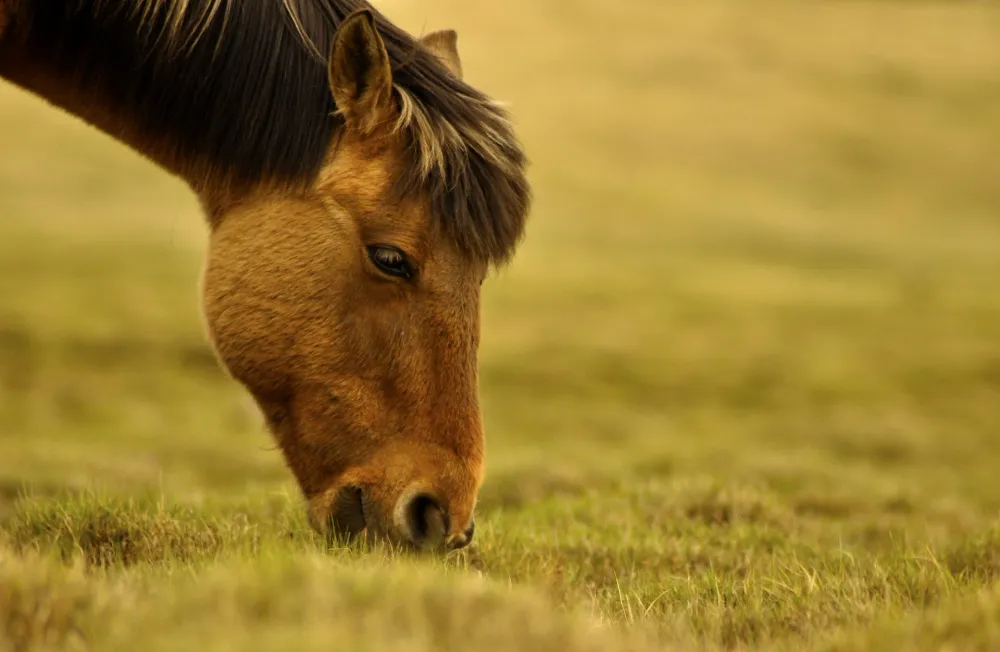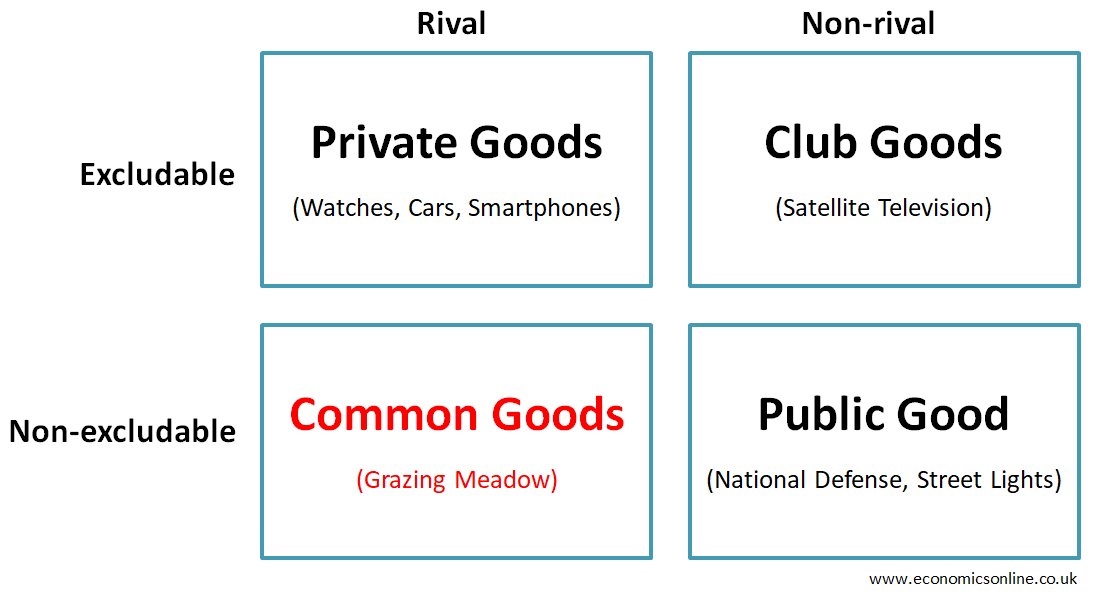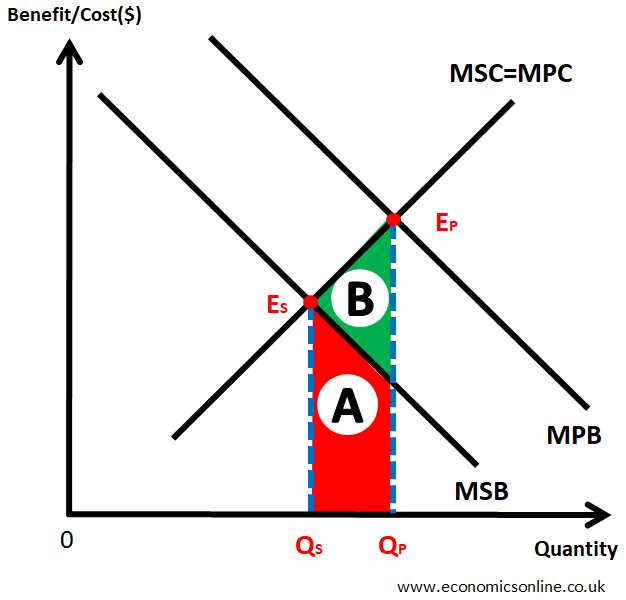
An image showing a horse grazing in the meadow.
Understanding the Tragedy of the Commons with Examples
What is the Tragedy of the Commons?
The tragedy of the commons is a phenomenon that occurs when individuals with free access to a public resource (also called a common good) act in their own self-interest, leading to the depletion of that shared resource.
The tragedy of the commons is a classic problem in economics that highlights the negative consequences of unchecked human behaviour. It explains the conflict between individual interests and the collective good, leading to the overuse of shared resources, such as water, air, or land.
In simple words, the tragedy of the commons is a situation when resources are freely and commonly available and people tend to overexploit them.
Background
The concept of "the tragedy of the commons" was first proposed in 1833 by British author William Forster Lloyd. In 1968, the term “tragedy of the commons” was used for the first time by Garret Hardin in Science Magazine.
Types of Goods
In order to understand the tragedy of the commons in a better way, let’s first explain a framework to classify different types of goods. This is shown in the following diagram.

Excludability
A good is said to be excludable if its availability can be stopped for non-payers.
Rivalry
A good is said to have rivalry in consumption if its use by one person decreases the quantity left for others.
Now there are four types of goods based on the framework of excludability and rivalry.
Private Goods
Private goods are excludable and rival. Examples of such goods are watches, mobile phones, and cars.
Quasi-public Goods
Club goods and common goods are called quasi-public goods because they don’t have all the features of public goods. They are hybrids between private and public goods.
Club Goods
Club goods are the first type of quasi-public goods. They are excludable but non-rival. An example of such a good is satellite television; you need to pay for a satellite dish to receive a broadcast (excludable), but the use of satellite television by one person will not decrease the quantity left for others (non-rival). Any number of people can subscribe simultaneously.
Common Goods
Common goods (common resources) are the second type of quasi-public goods. They are non-excludable and rival. An example of this kind of good is a meadow for grazing cattle; anyone is free to use the meadow (non-excludable), but one person's usage of the meadow reduces the amount left for use by others (rival).
Public Goods
Public goods are non-excludable and non-rival. Examples of such goods are street lighting and national defence.
Now let’s explain common goods in detail.
A "common good" is a quasi-public good that is non-excludable and rival. For example, in a meadow for grazing cattle; anyone is free to use the meadow (non-excludable), but one person's usage of the meadow reduces the amount left for use by others (rival). Other examples of common goods are underground water, fishing in the river or ocean, air, and traffic congestion.
Understanding the Tragedy of the Commons
In economic theory, the tragedy of the commons explains individuals’ tendency to make decisions based on their own self-interests, regardless of the negative impact they may have on others. When no one owns a resource, it may get overused and ultimately depleted. Consider the example of underground water. People overuse underground water without considering that this may result in its depletion, which will have a negative effect on others, and all will be deprived of the underground water. The same is true for many other natural resources.
In the tragedy of the commons, a shared resource, such as a fishery, grazing land, or water source, is overused and depleted because individuals act in their own self-interest, without considering the negative consequences for the group as a whole. In such situations, the benefits of exploiting the resource are immediate and personal, while the costs of overuse are shared by everyone. As a result, each individual has an incentive to consume as much as possible, leading to the exhaustion of the resource.
Examples of the Tragedy of the Commons
Over-fishing
Overfishing is an example of a common pool resource being depleted by individuals acting in their own self-interest. With the increase in the world population, the food supply needs to increase. However, overfishing by fishermen has reduced the food supply. For example, overfishing of the Pacific Bluefin tuna has caused an all-time population low of approximately three percent of their original population.
Groundwater
In many countries, groundwater is the main source of drinking water. Due to the overuse of groundwater, its supply is decreasing faster than it can be replenished. Hence, many countries may face water shortages in the future.
Grazing Land
Another example of the tragedy of the commons is the degradation of grazing land in developing countries. Farmers have an incentive to graze as many animals as possible on the common land, since this increases their income. However, if all farmers act in this way, the land will become overgrazed, leading to soil erosion and a decline in productivity.
The Atmosphere
The atmosphere is a global common good, as pollution emitted in one part of the world can affect air quality and climate change in other parts of the world. Because it is difficult to exclude people from emitting pollutants into the atmosphere, it is a non-excludable resource.
The Tragedy of the Commons as a Form of Market Failure
The tragedy of the commons can be seen as a type of market failure, where the market fails to allocate resources efficiently. In situations where a shared resource is overused and depleted, the costs of overuse are not reflected in the price of the resource. As a result, individuals have an incentive to consume as much as possible, leading to the depletion of the resource.
This is illustrated by the following diagram.

Profit maximisation output is Qp where MPC=MPB
Socially desirable output is Qs where MSC=MSB.
Qp>Qs, which shows overuse of the common good.
Due to QpQs overuse,
Social Benefit = A, Social Cost = A + B
Net Social Benefit = A – (A + B) = -B (Welfare Loss)
This welfare loss is faced by the society which is deprived of the common resource on account of its overuse by the individuals. In order to correct this market failure, government can intervene and can stop its overuse.
Significance of the Tragedy of the Commons
The concept of the tragedy of the commons is helpful for individuals, firms and governments, so they can make more sustainable and environmentally-friendly choices.
Avoiding the Tragedy of the Commons
To avoid the tragedy of the commons, governments may implement a range of policies, such as:
Property Rights
Common goods lack property rights. Governments may allocate property rights to give private ownership to individuals or groups, allowing them to own and manage a portion of the resource. This can provide an incentive for sustainable use, as individuals have a direct stake in the resource. For example, in the case of grazing land, governments may allocate property rights to farmers, allowing them to own and manage a portion of the land, and restricting access to others.
Regulations
Governments may impose regulations, such as catch limits or grazing restrictions, to prevent overuse of the resource.
Taxes and Subsidies
Governments may use taxes or subsidies to encourage sustainable use of the resource, such as providing subsidies for sustainable fishing practises.
Conclusion
The tragedy of the commons is a powerful concept that highlights the challenges of managing shared resources. It shows how individual self-interest can lead to the overuse and depletion of resources, and how government intervention may be necessary to prevent this outcome. By understanding the tragedy of the commons, we can develop better policies and solutions to ensure that resources are used sustainably and efficiently.


